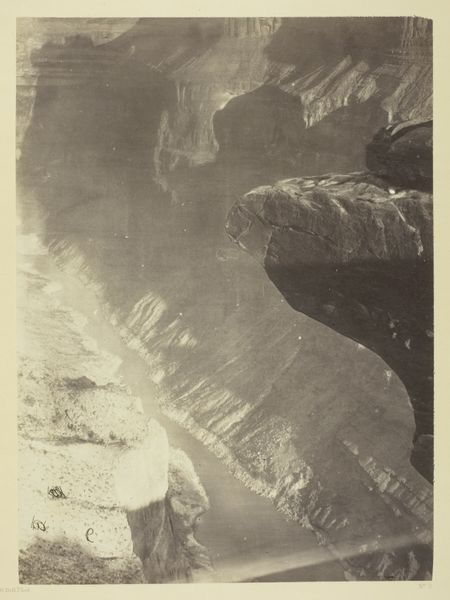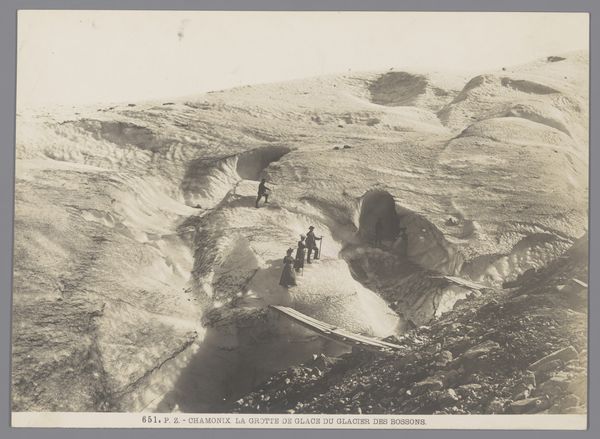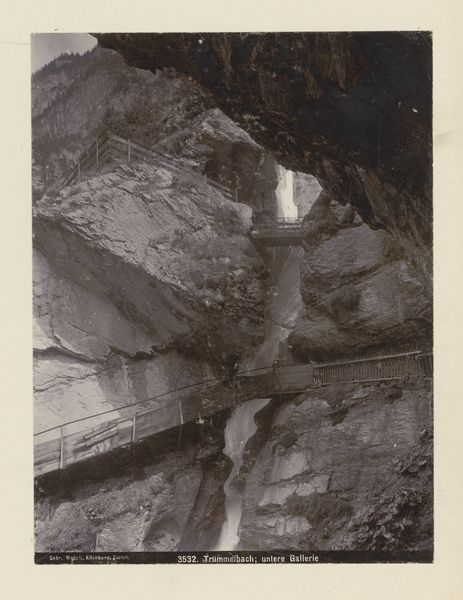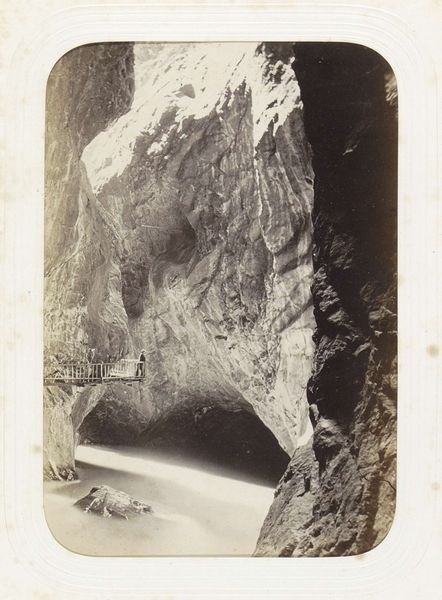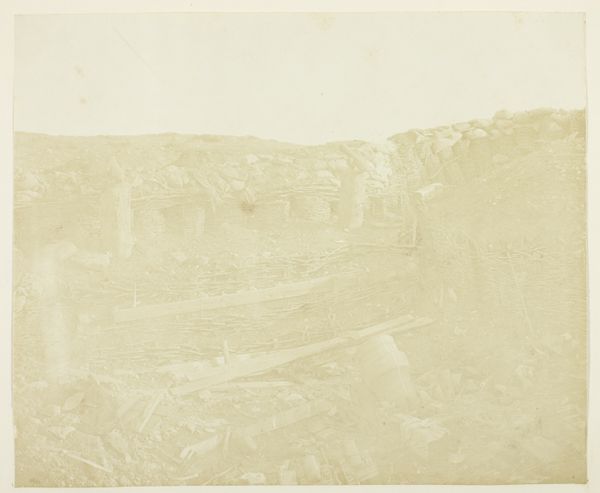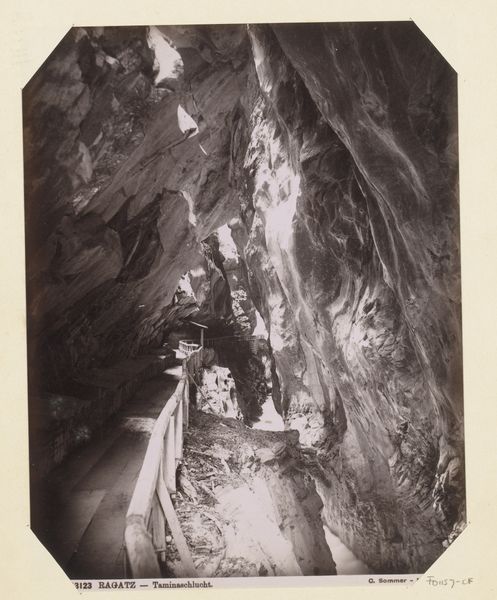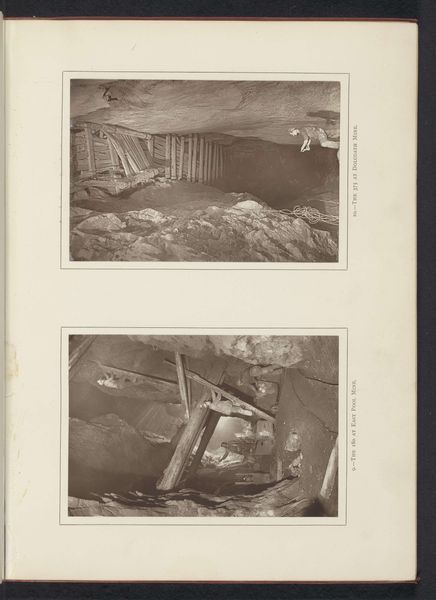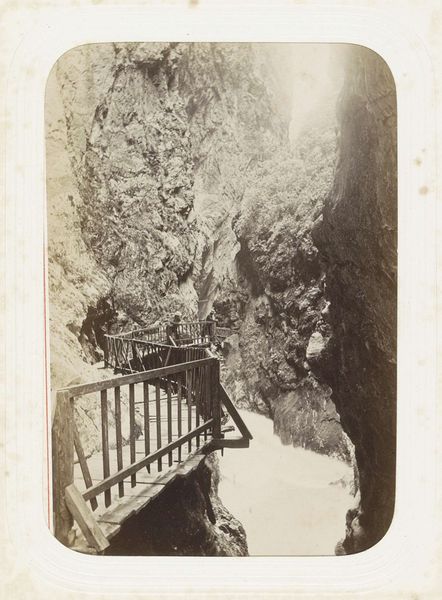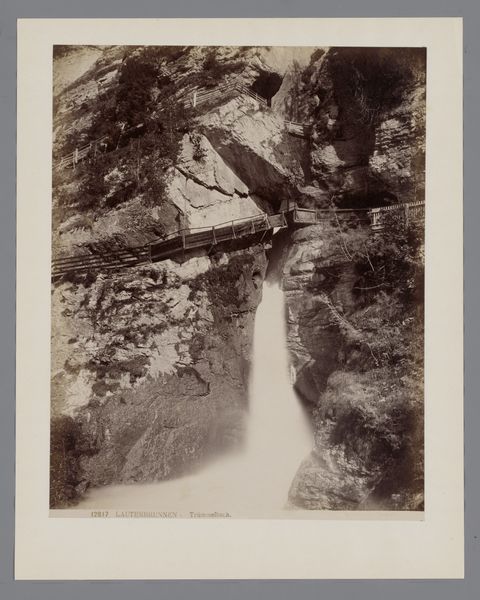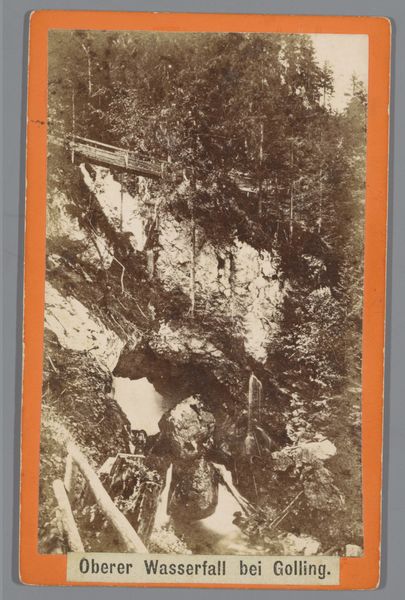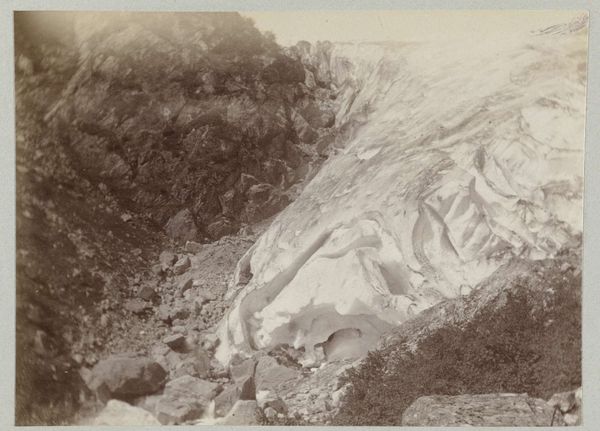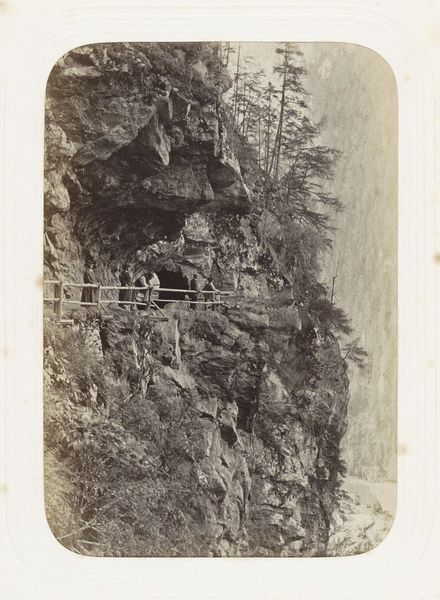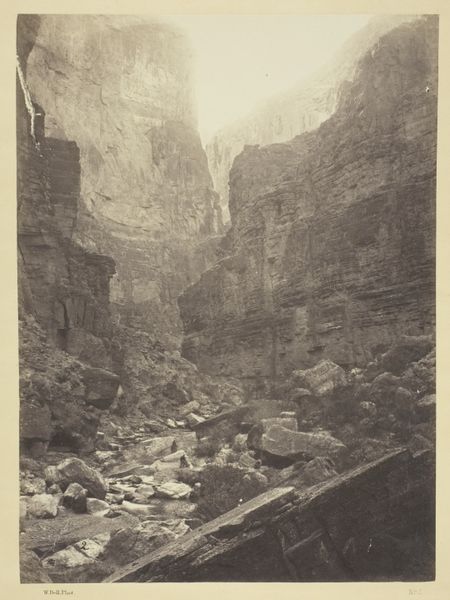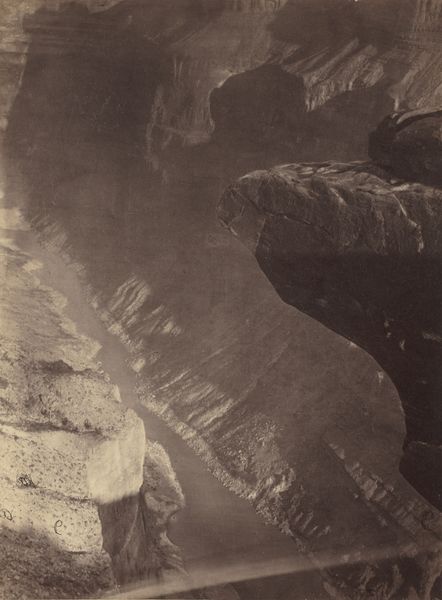
Dimensions: height 184 mm, width 108 mm
Copyright: Rijks Museum: Open Domain
William Henry Jackson made this photograph of a train in the Royal Gorge using a process called albumen printing. This technique, popular in the 19th century, involved coating paper with egg white and silver nitrate, creating a surface sensitive to light. Jackson’s method was labor-intensive, requiring careful preparation and precise timing. The resulting print shows incredible detail and tonal range. Note how the texture of the rocks is clearly rendered, against the light coming from the gap. But it's not just about the final image. Jackson was employed by the railroad companies to document the expansion of the railways through the American West. His photographs were instrumental in promoting tourism and investment, playing a key role in shaping the narrative of progress and development. This print is a testament to Jackson's technical skill, but it also speaks to the social and economic forces at play during the era of westward expansion.
Comments
No comments
Be the first to comment and join the conversation on the ultimate creative platform.
